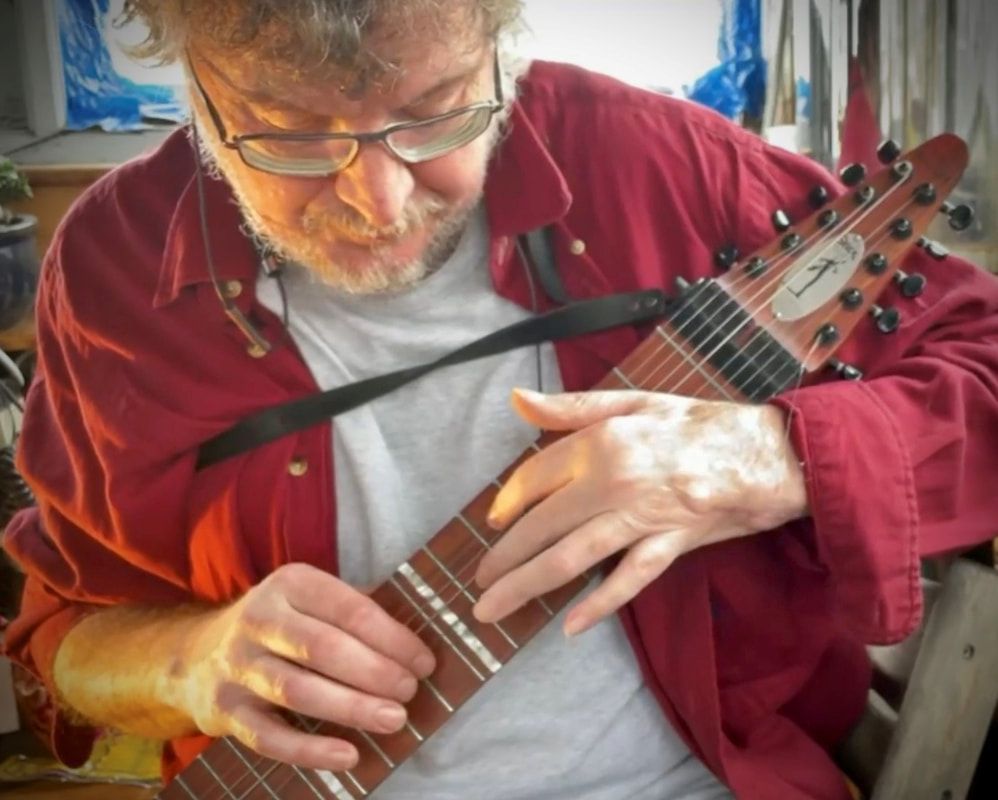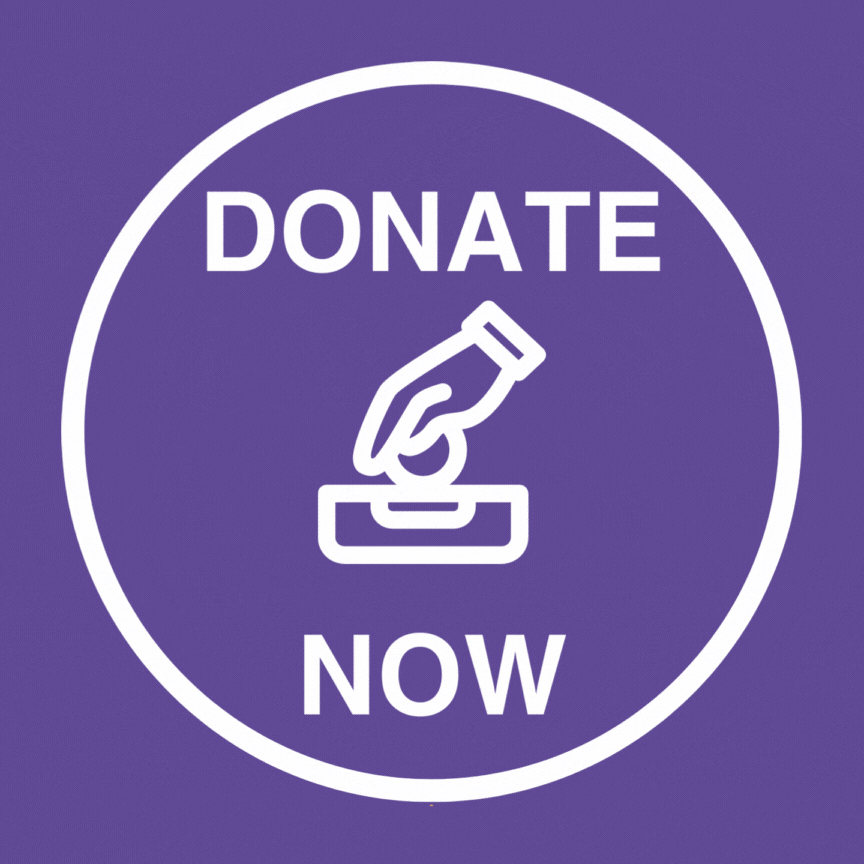Case study: Finding a way back to music-making after disabilityThe story of Brian Condon
|
There is very little that can prepare an individual for disability, particularly when onset is sudden and through traumatic circumstances. When it impacts that which is relied upon as comfort during tough times – the opportunity to make music – the blow seems even crueller. It is a life-changing experience faced by veteran musician Brian Condon, as he explains.
“I’ve been a guitar player since the age of 13 but, in 2021, I suffered a terrible injury to my left hand as a result of a boating accident. It has left me unable to hold a guitar, with a prognosis that I would never be able to play again.
Music is such an important part of my life and not being able to play has proved a psychological blow which I am still coming to terms with. Even picking up my guitars – and I’ve collected several over the years! – has simply been too painful and emotive.
Eventually, following the painful process to physically rebuild my hand and with support from a very talented hand therapist in London, I thought there must be someone with experience out there who I could learn from.
A researcher by nature, I started to dig. It didn’t take long to find OHMI. I confess, though, it took a month for me to summon up the courage to send the e-mail sitting in my Drafts folder and to make contact. The response from Rachel at OHMI was lovely and gave me hope.
Around the same time, OHMI were holding their 10th anniversary event. Joining the livestream afforded me the opportunity to see that playing a musical instrument to a high standard is indeed possible. It was a hard and emotional watch.
If the musicians – some young children – could pluck up the courage to perform, then why not me? Rachel introduced me to two instruments that proved the closest possible experience to playing the guitar – the Chapman Stick and the LinnStrument. The former is a physical analogue instrument that plugs into an amp and is close enough to the shape of a guitar to give it the same feel. The latter is a tactile instrument but, as a digital replica, is not the instrument itself.
Taking advantage of OHMI’s Instrument Hire Scheme enabled me to experiment with both instruments without committing to purchase. Like many adapted musical instruments and enabling equipment – which are never made en masse but by talented instrument makers – they remain expensive and with long lead times.
Playing the Chapman Stick has not been without its challenges. As a guitarist, it takes some adaptation. There is no requirement to pluck or strum, only to tap, which my disabled left hand is able to do. However, my dominant right hand remains unaffected by my accident so I feel it needs to be put to good use, and don’t wish to throw away the skills I’ve built up in that hand.
It's likely that I will try the Artiphon next which is much smaller and lighter.
That’s the value of OHMI's Instrument Hire Scheme. You can really get to know an instrument – at little financial cost, and with the opportunity to take the time to determine if it’s really right for you.
Again with my researcher hat on, I’m convinced there’s an instrument out there with the potential to be adapted to my particular needs. I’m already collaborating with a contact in Argentina on an outline design. OHMI’s competition for instrument design/adaptation is also an inspiration.
Frustrations of learning a completely new instrument aside, the Chapman Stick has enabled me to do something that was proving so difficult with my own guitars – the simple act of picking one up to play. And that’s certainly built back both my confidence and will, and paved a route back to my music making. In fact, a recent visit to a music shop led to me strumming a couple of tenor guitars.
I’m under no illusion that there are still bumps in the road to my recovery but, every day I make progress, I’m a day closer to a musical activity which gives me great personal strength. And my dogged determination as a researcher to question, seek and improve, will, I hope, benefit other guitarists who find themselves facing similar life-changing circumstances.”
Music is such an important part of my life and not being able to play has proved a psychological blow which I am still coming to terms with. Even picking up my guitars – and I’ve collected several over the years! – has simply been too painful and emotive.
Eventually, following the painful process to physically rebuild my hand and with support from a very talented hand therapist in London, I thought there must be someone with experience out there who I could learn from.
A researcher by nature, I started to dig. It didn’t take long to find OHMI. I confess, though, it took a month for me to summon up the courage to send the e-mail sitting in my Drafts folder and to make contact. The response from Rachel at OHMI was lovely and gave me hope.
Around the same time, OHMI were holding their 10th anniversary event. Joining the livestream afforded me the opportunity to see that playing a musical instrument to a high standard is indeed possible. It was a hard and emotional watch.
If the musicians – some young children – could pluck up the courage to perform, then why not me? Rachel introduced me to two instruments that proved the closest possible experience to playing the guitar – the Chapman Stick and the LinnStrument. The former is a physical analogue instrument that plugs into an amp and is close enough to the shape of a guitar to give it the same feel. The latter is a tactile instrument but, as a digital replica, is not the instrument itself.
Taking advantage of OHMI’s Instrument Hire Scheme enabled me to experiment with both instruments without committing to purchase. Like many adapted musical instruments and enabling equipment – which are never made en masse but by talented instrument makers – they remain expensive and with long lead times.
Playing the Chapman Stick has not been without its challenges. As a guitarist, it takes some adaptation. There is no requirement to pluck or strum, only to tap, which my disabled left hand is able to do. However, my dominant right hand remains unaffected by my accident so I feel it needs to be put to good use, and don’t wish to throw away the skills I’ve built up in that hand.
It's likely that I will try the Artiphon next which is much smaller and lighter.
That’s the value of OHMI's Instrument Hire Scheme. You can really get to know an instrument – at little financial cost, and with the opportunity to take the time to determine if it’s really right for you.
Again with my researcher hat on, I’m convinced there’s an instrument out there with the potential to be adapted to my particular needs. I’m already collaborating with a contact in Argentina on an outline design. OHMI’s competition for instrument design/adaptation is also an inspiration.
Frustrations of learning a completely new instrument aside, the Chapman Stick has enabled me to do something that was proving so difficult with my own guitars – the simple act of picking one up to play. And that’s certainly built back both my confidence and will, and paved a route back to my music making. In fact, a recent visit to a music shop led to me strumming a couple of tenor guitars.
I’m under no illusion that there are still bumps in the road to my recovery but, every day I make progress, I’m a day closer to a musical activity which gives me great personal strength. And my dogged determination as a researcher to question, seek and improve, will, I hope, benefit other guitarists who find themselves facing similar life-changing circumstances.”
The value of OHMI's Instrument Hire Scheme is that you can really get to know an instrument - at little financial cost, and with the opportunity to take the time to determine if it's really right for you
Donate to OHMIThere are so many disabled people who are desperate to play music with their peers. We can help to make that happen – but we can only do that with the wonderful support of our funders and donors.
As our instruments have to be hand-made by experts, they can only be produced in small numbers and are therefore expensive. Every little really does help.
|
Contact usIf you have a query or wish to contact us, please use the contact form available here.
You can also write to us: The OHMI Trust, 29 Woodbourne Road, Harborne, Birmingham B17 8BY |
Subscribe to our NewsletterIf you would like to join our mailing list and keep up to date with the latest news, please complete the form available here.
|
Privacy and Cookies Notice | Complaints Policy
All content © OHMI - Enabling Music-Making for Physically Disabled People
The OHMI Trust is a registered charity (Registered in England and Wales Charity No. 1143623, Scotland Charity No. SC052047).
Registered office: 29 Woodbourne Road, Harborne, Birmingham, B17 8BY
All content © OHMI - Enabling Music-Making for Physically Disabled People
The OHMI Trust is a registered charity (Registered in England and Wales Charity No. 1143623, Scotland Charity No. SC052047).
Registered office: 29 Woodbourne Road, Harborne, Birmingham, B17 8BY





